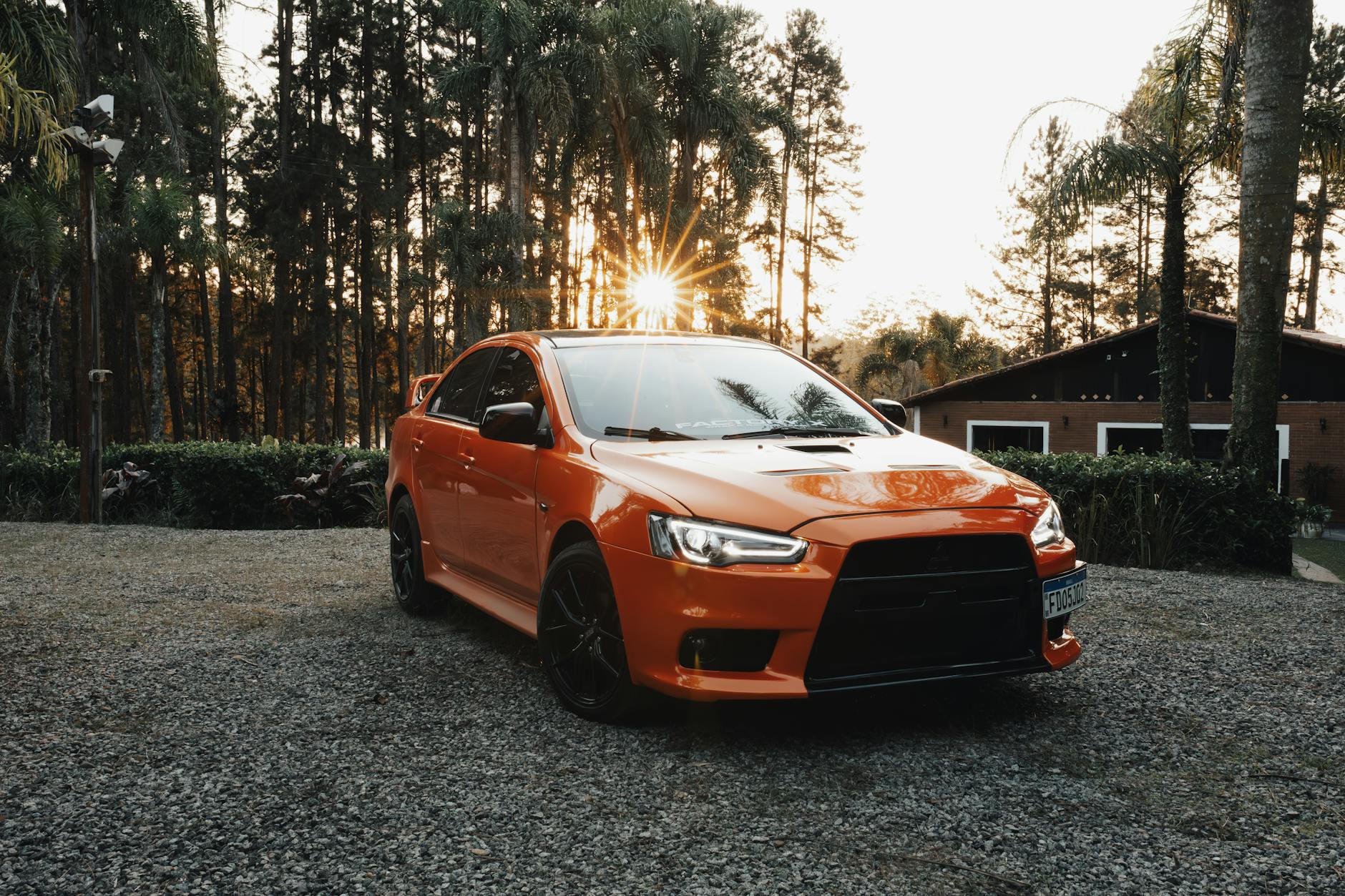Understanding PCP Car Finance
Basics of PCP Agreements
PCP, or Personal Contract Purchase, is one of the most popular car financing methods in the UK. It offers flexibility and comparatively lower monthly payments when compared to traditional car loans (Drive Fuze).
A PCP agreement typically consists of three stages:
- Initial Upfront Payment (Deposit): This is the first payment you make, which is usually a percentage of the car’s value.
- Monthly Payments: These payments cover the car’s depreciation over the term of the agreement.
- Optional Final Payment (GMFV): At the end of the agreement, you have the option to make a final payment, known as the Guaranteed Minimum Future Value (GMFV), if you wish to own the car.
The flexibility of PCP agreements allows you to drive a car for a number of years with the option of returning it, trading it in for a new one, or purchasing it at the end of the term.
Components of a PCP Deal
Understanding the components of a PCP deal is crucial for making an informed decision. Here are the key elements:
| Component | Description |
|---|---|
| Deposit | Initial payment, typically 10-20% of the car’s value |
| Monthly Instalments | Payments covering the car’s depreciation over 2-5 years (Carplus) |
| Mileage Limit | Agreed annual mileage; exceeding this may incur extra charges |
| Guaranteed Minimum Future Value (GMFV) | Predetermined final payment if you choose to buy the car |
| Option to Purchase Fee | Small fee to transfer ownership at the end of the term |
PCP contracts offer relatively low monthly payments compared to other types of car finance agreements, making them appealing to many individuals. However, it’s important to be aware of the mileage limits and potential charges for wear and tear.
For more detailed information, you might want to explore our articles on pcp car finance and pcp agreement. These resources can further guide you in understanding the nuances of PCP deals and help you make an informed decision. If you need to calculate your monthly payments, our pcp calculator can be a handy tool.
Benefits of PCP Car Loans
PCP (Personal Contract Purchase) car loans offer numerous advantages, making them a popular choice for individuals looking to finance their next vehicle. They not only provide financial flexibility but also cater to various lifestyle needs.
Lower Monthly Payments
One of the primary benefits of a PCP car loan is the lower monthly payments compared to traditional car loans. Unlike conventional loans where you pay off the entire value of the car, with PCP you only pay for the depreciation of the vehicle plus interest. This means you can drive a new or higher-spec car without the hefty monthly payments associated with outright purchases.
| Car Finance Option | Monthly Payment (£) |
|---|---|
| Traditional Car Loan | 400 |
| PCP Car Loan | 250 |
Figures courtesy of Hippo Leasing
PCP car finance allows you to spread the cost over a period of typically two or three years (Bright Motor Finance), making it a more manageable option for your budget. You can use our pcp car loan calculator to estimate your monthly payments.
Flexibility at the End
PCP car loans offer unparalleled flexibility at the end of the agreement. At the end of your PCP deal, you have three main options:
- Return the Car: If you decide not to keep the vehicle, you can simply hand it back to the dealer without any further financial obligations, provided the car is in good condition and within the agreed mileage limits.
- Pay the Balloon Payment: If you wish to keep the car, you can pay the optional final payment (often referred to as the balloon payment) to own the vehicle outright.
- Part-Exchange: You can trade in your car for a new one, using any equity towards the deposit on your next PCP agreement (Carplus).
| Option | Description |
|---|---|
| Return the Car | Hand back the vehicle to the dealer. |
| Pay the Balloon Payment | Make the final payment to own the car. |
| Part-Exchange | Trade in the vehicle for a new one. |
This level of flexibility allows you to adapt to changing circumstances and preferences. You can explore more about your options in our detailed guide on pcp car finance explained.
By understanding the benefits of PCP car loans, including lower monthly payments and end-of-term flexibility, you can make an informed decision about whether this financing method suits your needs. If you have been mis-sold a PCP agreement and need assistance, consider reaching out to a solicitor to handle your claim. For more detailed comparisons between PCP and other finance options, visit our pcp vs hp page.
Managing PCP Agreements
Impact of Missed Payments
Missed, cancelled, or late payments on a PCP agreement can have serious repercussions. It’s essential to understand these effects to manage your payments effectively. Several potential outcomes come with missed payments:
- Credit Score Impact: Missing a payment can negatively affect your credit score, making it more difficult to secure loans or credit in the future (Drive Fuze).
- Financial Penalties: Lenders may impose late payment fees or penalties, adding to your financial burden.
- Negative Equity: Failing to keep up with payments can result in owing more on the car than its market value, leaving you in negative equity.
For more details on managing your PCP agreement, visit our pcp car finance explained page.
Refinancing Options
If you want to keep the car at the end of your PCP agreement but can’t afford the final balloon payment, refinancing provides a viable solution. Refinancing allows you to convert the balloon payment into a series of more manageable monthly payments.
Hire Purchase (HP) Contract: You can refinance the balloon payment through a Hire Purchase contract. This means you will not own the car until you complete the final payment on the HP contract (buyacar.co.uk).
Balloon Payment Refinancing: Some lenders offer the option to refinance the balloon payment, spreading the cost over a new loan term (Carplus).
| Refinancing Option | Key Features |
|---|---|
| Hire Purchase Contract | Ownership after final payment, fixed monthly payments |
| Balloon Payment Refinancing | Spreads the cost of the balloon payment, new loan term |
It’s crucial to explore your refinancing options thoroughly to choose the best solution for your financial situation. For more on PCP deals, visit our pcp car finance comparison page.
By understanding the impact of missed payments and exploring refinancing options, you can better manage your PCP agreement and avoid potential pitfalls. For more information on PCP car loans, see our pages on pcp car finance, pcp car deals, and pcp car loan explained.
PCP vs. Hire Purchase
When considering car finance options, it’s important to understand the differences between Personal Contract Purchase (PCP) and Hire Purchase (HP). These two agreements offer distinct benefits and drawbacks, particularly in terms of ownership and monthly payments.
Ownership Comparison
One of the primary differences between PCP and HP agreements is the ownership structure at the end of the term.
Hire Purchase (HP) allows you to own the car outright once all payments have been made. With HP, you finance the entire value of the car, minus any initial deposit. Monthly repayments are made over a term that can range from one to seven years. After the final payment, including a small purchasing fee, ownership of the car is transferred to you.
Personal Contract Purchase (PCP), on the other hand, offers more flexibility at the end of the agreement. You have three options:
- Return the vehicle.
- Pay a balloon payment to own the car.
- Part-exchange it for a new one (Carbase).
While PCP offers lower monthly payments, you’ll only own the car if you choose to make the final balloon payment.
| Comparison Factor | Hire Purchase (HP) | Personal Contract Purchase (PCP) |
|---|---|---|
| Ownership at end of term | Automatic upon final payment | Requires final balloon payment |
| Options at end of term | Own the car | 1. Return the car 2. Pay balloon payment to own 3. Part-exchange |
For more information on ownership options, visit our PCP vs HP page.
Monthly Payment Variations
The structure of monthly payments is another key difference between PCP and HP agreements.
Hire Purchase (HP) involves financing the entire value of the car, resulting in higher monthly repayments. The loan amount is divided over the agreed term, which can be tailored from one to seven years (Carbase).
Personal Contract Purchase (PCP) involves financing only a portion of the car’s value, minus the deposit. This results in lower monthly payments compared to HP. The duration of a PCP agreement typically ranges from one to five years. At the end of the term, you have the option to pay a balloon payment if you wish to own the car.
| Comparison Factor | Hire Purchase (HP) | Personal Contract Purchase (PCP) |
|---|---|---|
| Monthly Payments | Higher | Lower |
| Financing | Full value of the car | Portion of the car’s value |
| Term Duration | 1-7 years | 1-5 years |
For a detailed breakdown of monthly payments, you can use our PCP car loan calculator.
Understanding these differences can help you choose the right car finance option for your needs. Whether you prefer the ownership certainty of HP or the flexibility and lower monthly payments of PCP, it’s important to consider your financial situation and long-term goals. For further guidance, visit our PCP car finance explained page.


